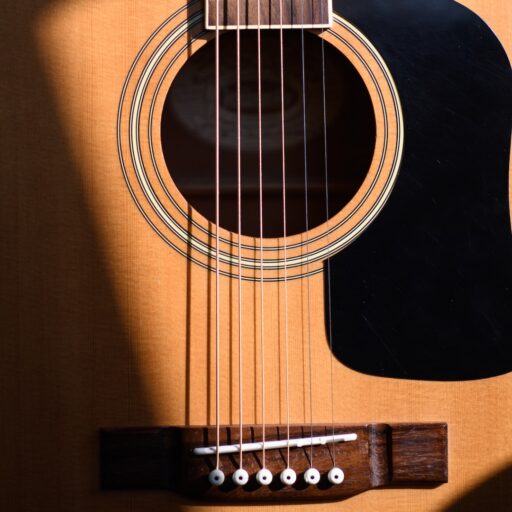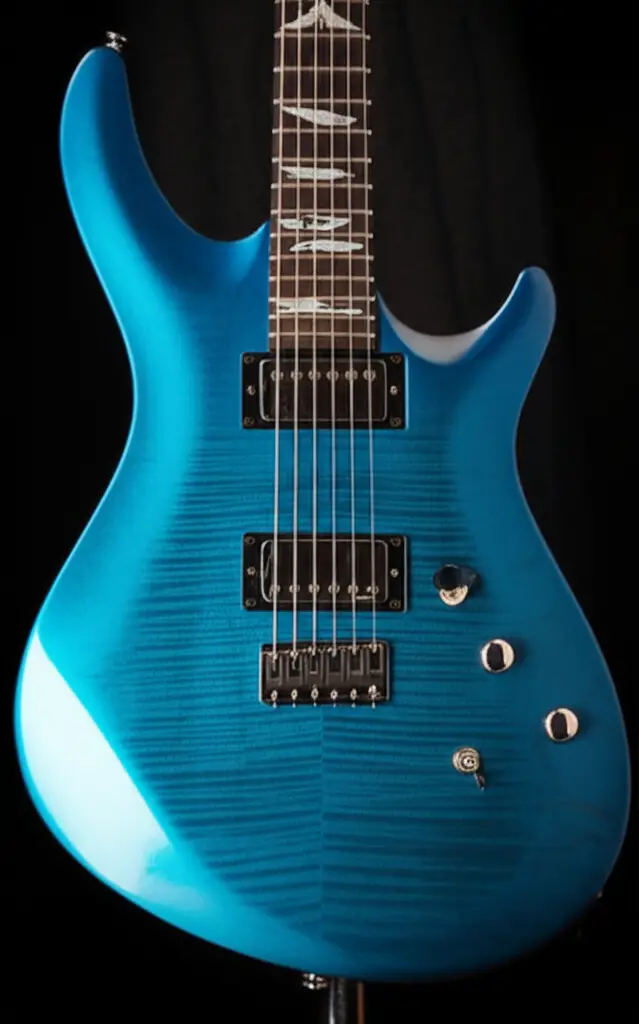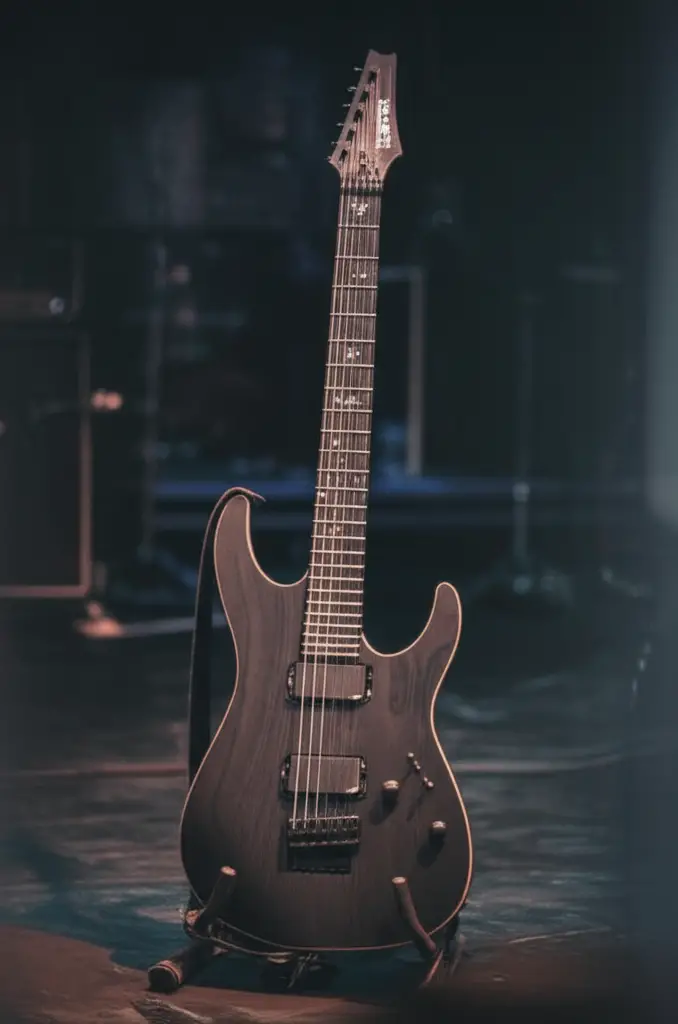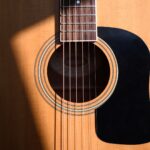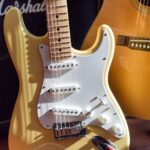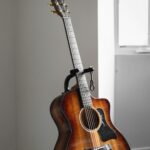Support our educational content for free when you purchase through links on our site. Learn more
25 Best Acoustic Guitar Manufacturers to Know in 2025 🎸
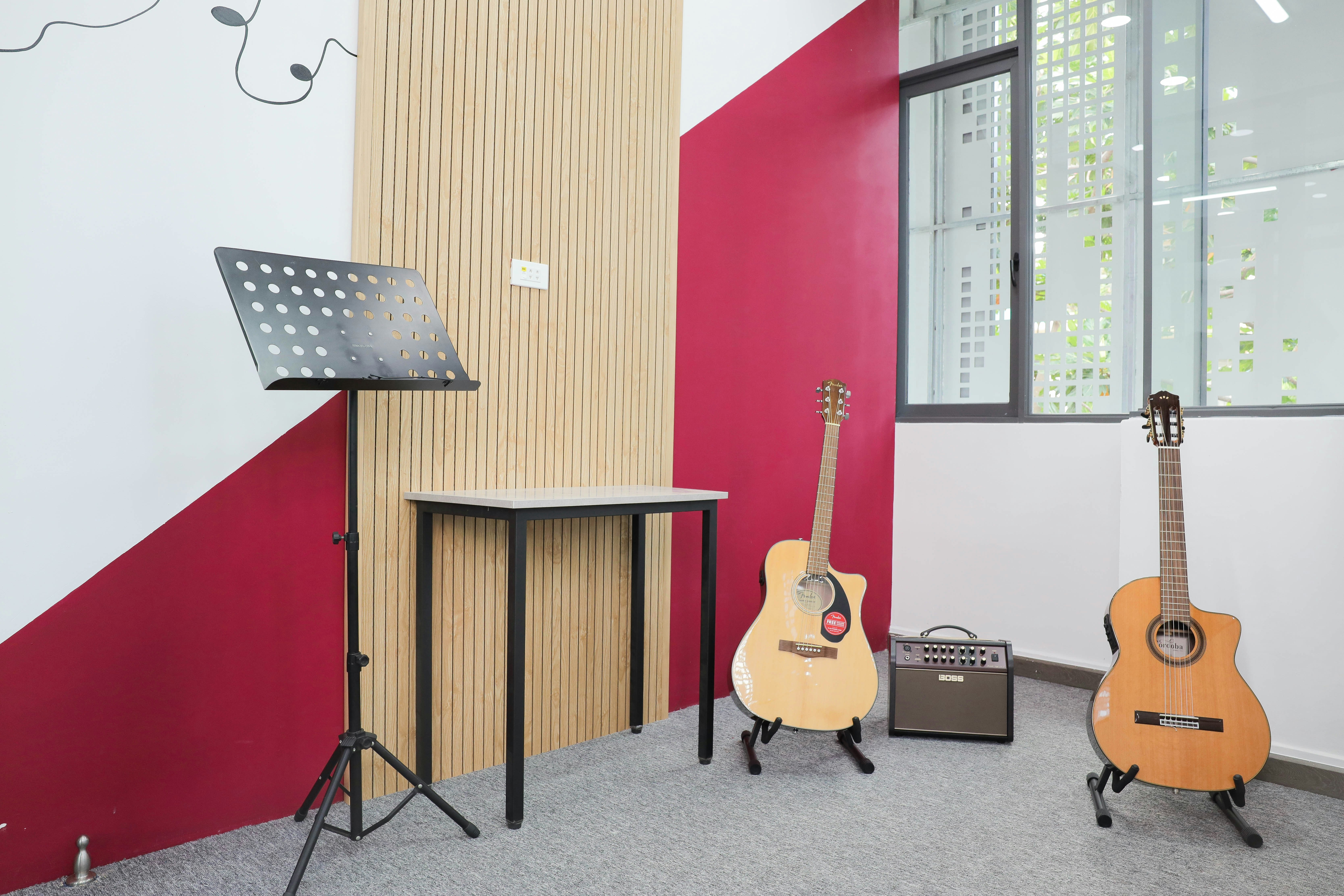
When you think of acoustic guitars, names like Martin and Taylor probably spring to mind—but did you know there are dozens of other manufacturers crafting incredible instruments that could be your perfect match? Whether you’re a beginner hunting for unbeatable value or a seasoned pro chasing legendary tone, this guide dives deep into 25 top acoustic guitar manufacturers from A to Z. We’ll reveal hidden gems like Eastman and Breedlove, explain why sustainability is reshaping the industry, and unpack innovations like Taylor’s V-Class bracing that are changing the game.
Here’s a teaser: one of our favorite stories involves a player who walked into our shop dead-set on a high-end Martin but fell head over heels for a modest Seagull S6 instead. It’s proof that the “best” guitar isn’t always the most expensive or famous—it’s the one that speaks to you. Ready to find yours? Let’s get strumming!
Key Takeaways
- Martin, Taylor, and Gibson remain the iconic leaders, but brands like Seagull, Eastman, and Breedlove offer exceptional quality and value.
- Solid wood tops are crucial for rich tone; laminate backs and sides can balance durability and price.
- Body shape and tonewoods dramatically affect sound—dreadnoughts for power, concert/parlor for fingerstyle clarity.
- Sustainability is increasingly important, with brands like Taylor and Breedlove pioneering ethical sourcing.
- Innovations such as Taylor’s V-Class bracing and Yamaha’s wood torrefaction enhance tone and playability.
- Buying used or B-stock guitars can unlock premium quality at a fraction of the price.
👉 Shop top acoustic guitar brands:
Table of Contents
- ⚡️ Quick Tips and Facts About Acoustic Guitar Manufacturers
- 🎸 The Evolution and Legacy of Acoustic Guitar Makers
- 1. Top Acoustic Guitar Brands A-F: From Affordable to Artisan
- 2. Leading Acoustic Guitar Manufacturers G-L: Craftsmanship and Innovation
- 3. Renowned Acoustic Guitar Makers M-R: Mastery and Materials
- 4. Acoustic Guitar Giants S-Z: Sound, Style, and Sustainability
- 🔍 How to Choose the Right Acoustic Guitar Manufacturer for You
- 🎯 What Sets Premium Acoustic Guitar Brands Apart?
- 🌿 Sustainability and Ethical Practices in Acoustic Guitar Manufacturing
- 🎵 Innovations and Technologies Shaping Modern Acoustic Guitars
- 💡 Insider Tips: Getting the Best Deals from Acoustic Guitar Manufacturers
- 📚 Recommended Links for Acoustic Guitar Enthusiasts
- ❓ Frequently Asked Questions About Acoustic Guitar Manufacturers
- 📖 Reference Links and Resources for Further Reading
- 🏁 Conclusion: Strumming Your Way to the Perfect Acoustic Guitar
Here at Guitar Brands™, we’ve spent more time with six-strings than with most of our relatives. We’ve unboxed pristine works of art, rescued dusty barn-finds, and helped countless players find “the one.” When it comes to the world of acoustic guitar manufacturers, we’ve seen it all, heard it all, and played most of it. It’s a universe filled with history, innovation, and a whole lot of sawdust. And just like you’re wondering about acoustic guitars, you might also be curious about their electric cousins; we’ve got a whole guide on How Many Electric Guitar Brands Are There? 🎸 (2025 Ultimate Guide) to satisfy that curiosity.
So, who are the titans of tone? The sultans of sustain? Let’s dive deep into the workshops and factories that create the instruments we love.
⚡️ Quick Tips and Facts About Acoustic Guitar Manufacturers
Before we get lost in the glorious details of tonewoods and bracing patterns, here are some quick-fire facts to get you tuned up. Think of this as the soundcheck before the main event!
| Fact Category | The Lowdown |
|---|---|
| The “Big Three” | Martin, Taylor, and Gibson are often considered the holy trinity of American acoustic guitar manufacturing, each with a distinct voice and legacy. |
| Tonewood is King | The type of wood used (tonewood) is the single biggest factor in an acoustic guitar’s sound. Spruce tops are bright and punchy; cedar is warmer and softer. |
| Solid vs. Laminate | Solid wood guitars (where the top, back, and sides are single pieces of wood) sound richer and improve with age. Laminate (layered wood) is more durable and affordable. |
| Country of Origin | Guitars made in the USA, Japan, or Canada are typically higher-end. Brands often have more affordable lines made in Mexico, China, or Indonesia. |
| Innovation Never Stops | Companies like Taylor Guitars are constantly pushing the envelope with new bracing systems (like their V-Class) and sustainable sourcing. |
| Body Shape Matters | A big Dreadnought is great for loud strumming. A smaller Concert or Parlor guitar is perfect for fingerstyle playing. |
A quick story from the shop: A young player once came in, convinced he needed the most expensive guitar we had. He’d read all the forums. We handed him a simple, solid-top Seagull S6. His eyes lit up. It wasn’t about the price tag; it was about the feel and the sound that connected with him. Remember that: Your perfect guitar manufacturer is the one that makes the guitar you can’t put down.
🎸 The Evolution and Legacy of Acoustic Guitar Makers
To understand today’s acoustic guitar manufacturers, you have to appreciate the giants whose shoulders they stand on. The story of the modern acoustic guitar is, in many ways, the story of America itself: a tale of European immigrants, relentless innovation, and the birth of new musical forms.
H3: The Martin Revolution
You can’t talk about acoustic history without bowing your head to C.F. Martin & Company. When Christian Frederick Martin arrived in the U.S. from Germany in 1833, guitars were small, quiet, parlor instruments. He changed everything. His masterstroke? The development of X-bracing in the 1850s. This internal support system allowed for larger bodies and steel strings, creating a louder, more robust instrument. This innovation paved the way for the Dreadnought, the cannon of the acoustic world, first introduced in 1916. As Wikipedia’s list of acoustic brands notes, “Martin guitars are widely considered to be among the finest acoustic guitars ever made.” That’s not marketing fluff; it’s a historical fact carved into the bedrock of American music.
H3: The Rise of the Archtop and the “Workhorse” Flat-Top
While Martin was perfecting the flat-top, another powerhouse, Gibson, was making waves with its archtop guitars, championed by luthier Lloyd Loar. These instruments, with their violin-like f-holes and arched tops, became the standard for jazz musicians. But Gibson also made its mark on the flat-top world, introducing iconic models like the J-45 (dubbed “The Workhorse”) and the flashy Hummingbird. These guitars had a different flavor than Martins—a bit drier, with a stronger midrange punch, perfect for the burgeoning worlds of blues, folk, and rock and roll. You can explore more of these legendary names in our Guitar Brand Guides.
This “Golden Era” of the 1930s and ’40s set the template that nearly every acoustic guitar manufacturer still follows today.
1. Top Acoustic Guitar Brands A-F: From Affordable to Artisan
Let’s kick off our A-Z tour with some incredible brands that prove quality isn’t always tied to a four-figure price tag.
Alvarez
A brand that consistently punches way above its weight class. Founded in 1965, St. Louis-based Alvarez has a knack for producing guitars with exceptional features (like solid tops and real bone nuts) at prices that make you do a double-take.
- What We Love: ✅ Incredible value for money. Their Artist Series is arguably one of the best mid-range lines on the market.
- What to Consider: ❌ Some of their entry-level models can be a bit generic-sounding, but that’s nitpicking at their price point.
- Our Take: If you have a modest budget but want a guitar that feels and sounds like it costs twice as much, Alvarez is your first stop. The Alvarez AD60 is a cannon of a dreadnought that we recommend to new players constantly.
👉 Shop Alvarez on: Amazon | Guitar Center | Sweetwater
Breedlove
Hailing from Bend, Oregon, Breedlove brings a touch of Pacific Northwest innovation to the table. They’re known for their unique, asymmetrical headstocks, slim necks, and a focus on sustainability with their “Eco Collection.”
- What We Love: ✅ Fantastic playability and a modern, articulate sound. Their use of sustainable and alternative tonewoods like Myrtlewood is commendable.
- What to Consider: ❌ Their distinct, modern tone might not be for players seeking a vintage, booming Martin or Gibson sound.
- Our Take: Breedlove is for the modern player. If you value comfort, clarity, and forward-thinking design, you’ll feel right at home. They are a standout in our Guitar Brands Showcase.
👉 Shop Breedlove on: Amazon | Guitar Center | Sweetwater
Eastman
Eastman started as a maker of violins and cellos, and they bring that classical, hand-carved ethos to their guitars. They are the undisputed kings of “vintage vibe for less.” Their guitars are handcrafted in China, but don’t let that fool you—the quality is on par with many US-made instruments.
- What We Love: ✅ Unbelievable craftsmanship. Solid woods, nitrocellulose finishes, and impeccable attention to detail. Their E-series acoustics are legendary.
- What to Consider: ❌ The nitro finish is delicate and requires more care than a modern poly finish.
- Our Take: Want the sound and feel of a 1930s Martin or Gibson without selling a kidney? Buy an Eastman. It’s that simple. The Eastman E10D is a powerhouse that gives guitars three times its price a run for their money.
👉 Shop Eastman on: Amazon | Guitar Center | Sweetwater
Epiphone
As Gibson’s more accessible sibling, Epiphone has a rich history of its own. They offer licensed versions of iconic Gibson models, giving players a chance to own a J-45, Hummingbird, or J-200 without the hefty price tag.
- What We Love: ✅ The “Inspired by Gibson” series is phenomenal, capturing the look and feel of the classics. The Epiphone J-200 is a showstopper.
- What to Consider: ❌ While great, they don’t have the same tonal complexity or resale value as their Gibson counterparts.
- Our Take: Epiphone is the gateway to the Gibson world. They make fantastic, reliable instruments that are perfect for gigging musicians and serious hobbyists.
👉 Shop Epiphone on: Amazon | Guitar Center | Sweetwater
Fender
Yes, the king of the Stratocaster also makes acoustics! While they might not have the deep-rooted acoustic legacy of Martin or Gibson, Fender brings its own California cool to the party. Their player-friendly designs, often featuring easy-to-play electric guitar neck profiles and fun colors, are a hit with a certain crowd.
- What We Love: ✅ Super comfortable necks. The Newporter, Redondo, and Malibu models are stylish and fun to play, especially for electric players crossing over.
- What to Consider: ❌ Tonally, they often can’t compete with similarly priced, more traditional acoustics from brands like Yamaha or Alvarez. You’re paying for the vibe and playability.
- Our Take: If you’re an electric player who wants an acoustic that feels familiar, or a beginner who wants a guitar that looks as cool as it sounds, Fender is a great choice.
👉 Shop Fender on: Amazon | Guitar Center | Sweetwater
2. Leading Acoustic Guitar Manufacturers G-L: Craftsmanship and Innovation
Now we’re getting into some of the heavy hitters—brands synonymous with iconic sounds and impeccable build quality.
Gibson
The sound of rock, folk, and blues. Gibson acoustics have a percussive, “thumpy” quality that’s all their own. They sit perfectly in a mix, which is why you see them in the hands of everyone from Bob Dylan to Noel Gallagher.
- What We Love: ✅ That iconic, dry, woody tone. The J-45 is called “The Workhorse” for a reason—it does everything well. Their visual aesthetic is second to none.
- What to Consider: ❌ They come with a premium price tag. Quality control has been a topic of debate in online forums over the years, though recent reports are overwhelmingly positive.
- Our Take: There is no substitute for the Gibson sound. When you play a great J-45 or Hummingbird, you understand why they’re legendary. It’s a raw, emotional, and inspiring tone that has powered countless hits.
👉 Shop Gibson on: Amazon | Guitar Center | Sweetwater
Guild
Built like a tank and sounds like a choir. Guild guitars, particularly from their Westerly, Rhode Island era, are renowned for their robust construction and lush, balanced tone. They are especially famous for their 12-string models.
- What We Love: ✅ Amazing value in the used market. Their US-made models are incredible, and the imported Westerly Collection is a standout. The Guild D-55 is a dreadnought that can go toe-to-toe with any Martin.
- What to Consider: ❌ They can be heavy guitars due to their sturdy build.
- Our Take: Guild is the connoisseur’s choice. People who know, know. They offer a fantastic alternative to the bigger names, with a unique voice and a reputation for quality that has endured for decades.
👉 Shop Guild on: Amazon | Guitar Center | Sweetwater
Ibanez
While famous for their lightning-fast electrics, Ibanez has a surprisingly diverse and innovative acoustic lineup. They are not afraid to experiment with body shapes, finishes, and electronics.
- What We Love: ✅ Excellent playability, often with slim, comfortable necks. Their Artwood series offers fantastic value with solid tops and quality hardware.
- What to Consider: ❌ Like Fender, their primary focus is electrics, and some purists might overlook them.
- Our Take: Ibanez acoustics are for the player who isn’t bound by tradition. They offer modern features and a sleek aesthetic, often with great built-in electronics, making them perfect for the stage.
👉 Shop Ibanez on: Amazon | Guitar Center | Sweetwater
Larrivée
Jean Larrivée started out studying classical guitar making in Toronto, and that DNA of precision and balance is in every guitar his company makes. Known for using a single piece of wood for their necks and for their symmetrical bracing, Larrivée guitars are models of clarity and craftsmanship.
- What We Love: ✅ Impeccable balance across the tonal spectrum. Every Larrivée, from the entry-level 03 Series up, is made in the USA with all-solid woods. That’s incredible.
- What to Consider: ❌ Their balanced tone might lack the boomy bass of a Martin or the dry thump of a Gibson, which some players crave.
- Our Take: Larrivée is the thinking person’s guitar. It’s for fingerstylists and players who appreciate nuance and clarity above all else. A truly high-end instrument without the astronomical price of some competitors.
👉 Shop Larrivée on: Amazon | Guitar Center | Sweetwater
3. Renowned Acoustic Guitar Makers M-R: Mastery and Materials
This section features the undisputed king of the acoustic world, a polarizing innovator, and a champion of vintage recreation.
Martin
The benchmark. The standard. The alpha and the omega of the acoustic guitar. Since 1833, C.F. Martin & Co. has been crafting instruments that define the very sound we associate with the acoustic guitar. Their history is so intertwined with American music that it’s impossible to separate them.
- What We Love: ✅ The legendary Martin tone—rich, complex, with a powerful low end. The D-28 is the quintessential dreadnought. Their history, legacy, and consistency are unmatched.
- What to Consider: ❌ The price of admission for their US-made models is high. Their more affordable Mexican-made models are great but face stiff competition.
- Our Take: Owning a US-made Martin is a rite of passage for many serious acoustic players. It’s more than just a guitar; it’s a piece of history. The sound, the smell of the wood, the feel of the neck—it’s an experience. If you’re serious about acoustic guitar, you owe it to yourself to play one.
👉 Shop Martin on: Amazon | Guitar Center | Sweetwater
Ovation
Get ready for a debate! No brand divides the acoustic world quite like Ovation. Founded by an aerospace engineer, Charles Kaman, Ovation threw out the rulebook with their rounded, composite “Lyrachord” backs.
- What We Love: ✅ Unbeatable on-stage performance. The round back design is incredibly feedback-resistant, and their electronics have always been top-notch. They are durable and have a unique, focused tone.
- What to Consider: ❌ They don’t sound like a traditional wood guitar when unplugged. The rounded back can be awkward for some players when sitting down. It’s a love-it-or-hate-it proposition.
- Our Take: Don’t let the purists fool you. For live performers in the ’70s and ’80s, Ovations were a godsend. They solved real-world problems. While their acoustic tone isn’t for everyone, they are purpose-built tools that excel at their job.
👉 Shop Ovation on: Amazon | Guitar Center | Sweetwater
Recording King
Named after the old Montgomery Ward house brand from the 1930s, the modern Recording King company specializes in creating guitars with a pre-war vintage aesthetic and sound, but at a fraction of the cost.
- What We Love: ✅ Incredible vintage vibe. They use classic designs, thin finishes, and traditional tonewoods to capture the sound of the “Golden Era.” Their small-body and parlor guitars are particularly fantastic.
- What to Consider: ❌ Fit and finish can sometimes be less refined than on more expensive instruments. Neck profiles are often chunky “V” shapes, which might not suit all players.
- Our Take: Along with Eastman, Recording King is a top choice for players chasing vintage tone on a budget. They offer a raw, authentic playing experience that’s hard to find in this price range.
👉 Shop Recording King on: Amazon | Guitar Center | Sweetwater
4. Acoustic Guitar Giants S-Z: Sound, Style, and Sustainability
We round out our list with a Canadian value-king, a modern innovator, a historic American brand, and a Japanese giant that does it all.
Seagull
A brand under the Godin Guitars umbrella in Canada, Seagull’s mission is simple: deliver the best possible guitar for the money, with a focus on quality North American tonewoods.
- What We Love: ✅ Almost every Seagull guitar features a pressure-tested solid top, which is unheard of at their price points. The Seagull S6 is perhaps the most recommended beginner-to-intermediate acoustic of all time. Their unique tapered headstock improves tuning stability.
- What to Consider: ❌ The wider nut width on many models is great for fingerstyle but can be a bit much for players with smaller hands. The rustic, no-frills aesthetic isn’t for everyone.
- Our Take: Seagull is the undisputed champion of value. For the price of many all-laminate guitars, you get a Canadian-made instrument with a solid wood top that will only sound better as it ages. It’s the smartest buy in acoustics.
👉 Shop Seagull on: Amazon | Guitar Center | Sweetwater
Taylor
If Martin represents the history of the acoustic guitar, Taylor represents its future. Since 1974, Bob Taylor has revolutionized guitar manufacturing with a focus on playability, consistency, and innovation. As their own website states, they are “renowned for blending modern, innovative manufacturing techniques with a master craftsman’s attention to detail.”
- What We Love: ✅ Unmatched playability and comfort, thanks to their slim neck profiles and patented NT Neck. Their signature sound is bright, clear, and balanced. Their V-Class bracing is a genuine innovation in guitar design.
- What to Consider: ❌ The bright “Taylor sound” may not appeal to those who prefer the warm, bass-heavy tone of a Martin.
- Our Take: Taylor makes a “perfect” guitar. The consistency from one instrument to the next is staggering. They are beautiful, easy to play, and sound incredible, especially plugged in, thanks to their Expression System 2 electronics. A Taylor is a precision tool for the modern musician.
👉 Shop Taylor on: Amazon | Guitar Center | Sweetwater
Washburn
With a history stretching back to Chicago in 1883, Washburn is one of America’s oldest musical instrument brands. They’ve had their ups and downs, but today they produce a wide range of quality acoustics that offer great value.
- What We Love: ✅ Their Comfort Series, with its beveled edges, is incredibly ergonomic. They offer a huge variety of models, from vintage-inspired parlors to modern dreadnoughts.
- What to Consider: ❌ Lacks the strong brand identity of a Martin or Taylor. They are a “jack of all trades” brand.
- Our Take: Washburn is a dark horse. They make genuinely great guitars that often fly under the radar. If you find one that speaks to you, you’ll likely get a fantastic instrument for a very fair price.
👉 Shop Washburn on: Amazon | Guitar Center | Sweetwater
Yamaha
The sleeping giant. Yamaha might be known for motorcycles and pianos, but their acoustic guitars are legendary for their quality, consistency, and value. From the beginner-favorite FG series to the high-end, handcrafted L series, Yamaha delivers.
- What We Love: ✅ Bulletproof reliability. A Yamaha guitar will always be well-built, play well, and sound good. The FG800 is, alongside the Seagull S6, one of the best entry-level acoustics money can buy. Their A.R.E. (Acoustic Resonance Enhancement) wood-torrefaction technology is fantastic.
- What to Consider: ❌ They can sometimes lack the “soul” or unique character of more boutique brands. They are masters of consistency, not necessarily personality.
- Our Take: You can never, ever go wrong with a Yamaha. It’s the safest and smartest bet in the guitar world. Whether you’re a complete beginner or a seasoned pro, Yamaha makes a guitar that will exceed your expectations for the price.
👉 Shop Yamaha on: Amazon | Guitar Center | Sweetwater
🔍 How to Choose the Right Acoustic Guitar Manufacturer for You
Okay, we’ve thrown a lot of names at you. So how do you narrow it down? It’s like finding a partner—it’s all about compatibility. As the folks at Taylor Guitars wisely point out, “If your first acoustic guitar is not the appropriate choice for you, then it can dramatically reduce the enjoyment you will get out of your instrument.” Let’s break down the decision process with our Guitar Buying Guide.
H3: Your Budget: Finding the Sweet Spot
- Entry-Level (Under a few hundred dollars): Look at Yamaha, Fender, Epiphone, and Alvarez. Focus on getting a solid top if you can (like the Yamaha FG800 or Alvarez AD60). This is the biggest upgrade you can make at this price.
- Mid-Range (A few hundred to a thousand dollars): This is the sweet spot for value. Seagull, Breedlove, Eastman, Recording King, and higher-end Yamahas rule this category. You can get all-solid wood guitars and incredible craftsmanship here.
- High-End (Over a thousand dollars): Welcome to the big leagues. Martin, Taylor, Gibson, and Larrivée are the main players. Here, you’re paying for premium, US-made (or Canadian) craftsmanship, the best tonewoods, and brand legacy.
H3: Your Playing Style: Strummer, Fingerpicker, or Both?
- Aggressive Strummer: You need a guitar that can handle the power without getting muddy. A Dreadnought or Jumbo from Martin, Gibson, or Guild is your best friend. They have the bass and volume to sing out.
- Delicate Fingerpicker: You need clarity, note separation, and responsiveness. A smaller body like a Concert, Auditorium (000/OM), or Parlor is ideal. Taylor and Larrivée excel here, as do the smaller-bodied models from Martin and Eastman.
- The All-Rounder: If you do a bit of everything, a Grand Auditorium (Taylor’s signature shape) or an OM (Orchestra Model) is the most versatile shape. They have the balance for fingerstyle and enough punch for strumming.
H3: Tonewoods 101: The Soul of the Sound
This is a deep rabbit hole, but here’s the cheat sheet:
| Tonewood | Typically Used For | Sound Profile |
|---|---|---|
| Sitka Spruce | Tops | The all-rounder. Bright, punchy, dynamic. The most common top wood. |
| Cedar | Tops | Warmer, darker, and quieter than spruce. Responds well to a light touch. Great for fingerstyle. |
| Mahogany | Tops, Back & Sides | “Woody,” dry, and focused on the midrange. Great for blues and roots music. An all-mahogany guitar has a very distinct, compressed sound. |
| Rosewood | Back & Sides | The classic pairing with a spruce top. Scooped mids, with deep bass and shimmering highs. Creates a rich, complex, “hi-fi” sound. |
| Maple | Back & Sides | Bright, focused, and transparent. Doesn’t add much color, so you hear the sound of the top and your hands. Common on Jumbo guitars. |
🎯 What Sets Premium Acoustic Guitar Brands Apart?
So, what are you really paying for when you jump from a $500 Seagull to a multi-thousand dollar Martin? Is it just the name on the headstock? Not at all.
H3: Solid vs. Laminate Woods: The Great Debate
This is the big one. A solid wood guitar uses single, solid pieces of wood for its top, back, and sides. A laminate guitar uses thin sheets of wood pressed together (like plywood).
- ✅ Solid wood vibrates more freely, producing a richer, more complex, and louder tone. It also “opens up” over time, meaning its sound actually improves as the wood ages and settles.
- ❌ Laminate wood is less expensive and more resistant to changes in humidity and temperature, but it lacks the tonal depth of solid wood.
Premium brands like Martin, Taylor, and Gibson use all-solid woods for their flagship models. Many excellent mid-range guitars use a solid top with laminate back and sides—a great compromise for tone and durability.
H3: The Magic of Bracing
The pattern of wooden struts glued to the underside of the guitar’s top is called bracing. It’s the secret sauce that shapes the instrument’s voice. Martin’s scalloped X-bracing (where the braces are shaved down to be lighter) is the classic standard for a boomy, bass-rich tone. Taylor’s modern V-Class bracing is designed to increase both volume and sustain, creating a more orderly, “in-tune” sound. The time and precision required for expert bracing is a huge part of a premium guitar’s cost.
H3: Fit and Finish: The Devil is in the Details
On a high-end guitar, every detail is perfect. The fret ends are smooth as glass. The binding and inlays are flawless. The finish (often a thin, breathable nitrocellulose lacquer) is perfectly applied. This level of human attention and skilled labor is what separates a good guitar from a lifelong instrument.
🌿 Sustainability and Ethical Practices in Acoustic Guitar Manufacturing
The guitar world is waking up. For decades, we’ve relied on exotic tonewoods like Brazilian Rosewood and Ebony, some of which are now endangered and heavily regulated by international treaties like CITES. This has forced manufacturers to innovate, and that’s a good thing!
- Taylor Guitars is a leader here. They co-own an ebony mill in Cameroon, The Crelicam Project, which has revolutionized the ethical harvesting of the wood. Instead of only taking pure black ebony and wasting the rest, they now use “streaked” ebony, promoting full-tree usage and providing legal, stable jobs.
- Martin Guitars has a long line of FSC® Certified models, ensuring the wood comes from responsibly managed forests. They’ve also been pioneers in using high-tech, sustainable alternatives like High-Pressure Laminate (HPL) and Richlite (a composite material used for fingerboards and bridges) on their more affordable models.
- Breedlove has made a huge push with their ECO Collection, utilizing sustainably sourced woods and developing new techniques to get amazing tone from alternative species like Myrtlewood.
When you buy from a manufacturer that prioritizes sustainability, you’re not just getting a great instrument; you’re helping ensure that we can keep building them for generations to come.
🎵 Innovations and Technologies Shaping Modern Acoustic Guitars
Think acoustic guitars are stuck in the past? Think again! The last few decades have seen a surge of game-changing tech.
- Advanced Bracing: As mentioned, Taylor’s V-Class system was a seismic shift. But other makers are constantly tweaking their bracing patterns to coax new sounds out of traditional designs.
- Torrefaction (Wood Roasting): Brands like Yamaha (A.R.E.), Martin (VTS), and many boutique builders use a process of heating wood in a controlled environment to replicate the cellular structure of aged, vintage wood. This gives a brand-new guitar the dry, open sound of an instrument that’s been played for 50 years. It’s like a time machine for tone!
- Onboard Electronics: Pickup technology has come a long way from the harsh, “quacky” undersaddle pickups of the ’80s. Systems like the LR Baggs Anthem (which blends a microphone and a pickup) and Fishman’s Aura technology (which uses digital “images” of miked guitars) provide stunningly realistic plugged-in tones. Taylor’s Expression System 2, which uses sensors behind the saddle rather than under it, is another fantastic innovation.
- Alternative Materials: While wood is king, some companies are pushing the boundaries with carbon fiber. Brands like Lava Music and McPherson make guitars that are impervious to weather changes and virtually indestructible, opening up new possibilities for traveling musicians.
💡 Insider Tips: Getting the Best Deals from Acoustic Guitar Manufacturers
We all love a good deal. Here’s how we at Guitar Brands™ find them:
- Buying Used: This is the #1 way to get the most guitar for your money. A five-year-old Martin D-18 that’s been well-cared-for will sound even better than a new one and cost significantly less. Check Reverb, local music stores, and Facebook Marketplace.
- B-Stock and Factory Seconds: These are new guitars with minor cosmetic blemishes—a tiny scratch in the finish, a small discoloration in the wood—that don’t affect playability or sound at all. You can often get them for a substantial discount from authorized dealers.
- “Gateway” Models: Look for the most affordable, all-solid wood model in a premium brand’s lineup. The Martin D-10E, Taylor American Dream Series, and Larrivée 03 Series are perfect examples. They give you 90% of the flagship experience for a fraction of the price.
- The Power of a Professional Setup: A great setup from a qualified luthier can make a $400 guitar play like a $1,500 one. Don’t underestimate it! Getting the action (string height) just right is the key to playability.
📚 Recommended Links for Acoustic Guitar Enthusiasts
Want to dive even deeper? These are some of the resources we trust and enjoy.
- Acoustic Guitar Magazine: A fantastic resource for lessons, gear reviews, and artist interviews.
- The Acoustic Letter: A great YouTube channel with high-quality demos of a huge range of acoustic guitars.
- Premier Guitar: While they cover electrics too, their “Acoustic Soundcheck” series is excellent for hearing different instruments in action.
- The Unofficial Martin Guitar Forum (UMGF): If you’re a Martin fan, this is the deepest well of knowledge on the internet.
❓ Frequently Asked Questions About Acoustic Guitar Manufacturers
We get these questions all the time in the shop. Let’s clear them up.
H3: What is the best acoustic guitar brand for beginners?
There’s no single “best,” but our top recommendations are almost always Yamaha and Seagull. Yamaha (like the FG800) offers incredible consistency and quality for the price. Seagull (like the S6) offers a Canadian-made, solid-top guitar for an amazing value. You can’t go wrong with either.
H3: Are expensive guitars from brands like Martin or Taylor really worth it?
Yes, but with a caveat. The law of diminishing returns is real. The difference between a $500 guitar and a $2,500 guitar is massive in terms of tone, feel, and materials (solid woods, better hardware, craftsmanship). The difference between a $2,500 guitar and a $10,000 guitar is much more subtle—it’s about chasing that last 5% of tonal perfection, rare woods, and intricate inlay work. For most players, a high-quality, US-made instrument from Martin, Taylor, or Gibson is an “endgame” guitar that will last a lifetime.
H3: What’s the difference between a US-made and an overseas-made guitar from the same brand?
Generally, it comes down to three things: materials, labor, and scale.
- Materials: US-made guitars typically use higher-grade solid woods. Overseas models might use lower-grade solid woods or laminate back and sides.
- Labor: Labor costs are significantly higher in the US, and the luthiers in the US factories are often the most experienced in the company.
- Scale: Factories in Mexico or Asia are often set up for higher-volume production, which can mean less hands-on time per instrument. That said, the quality of overseas manufacturing from top brands like Martin, Taylor, and Yamaha is better than it has ever been.
H3: How important is solid wood?
For the top of the guitar, it’s extremely important. The top is the “speaker cone” of the instrument and is responsible for most of its tonal character. A solid top will sound significantly better than a laminate one. For the back and sides, solid wood adds richness and complexity, but a guitar with a solid top and laminate back/sides is a fantastic and durable option that we highly recommend in the mid-range.
📖 Reference Links and Resources for Further Reading
To bring you this comprehensive guide, we consulted our own decades of experience and cross-referenced information from these authoritative sources.
- C.F. Martin & Co. History: Martin Guitar – Our Story
- Taylor Guitars Philosophy and Technology: Taylor Guitars Official Website
- Gibson Brands History: Gibson – The Story of Gibson
- General List of Manufacturers: Wikipedia – List of acoustic guitar brands
- CITES and Rosewood Regulations: CITES.org
- The History of the Guitar: The Metropolitan Museum of Art – The Guitar
🏁 Conclusion: Strumming Your Way to the Perfect Acoustic Guitar
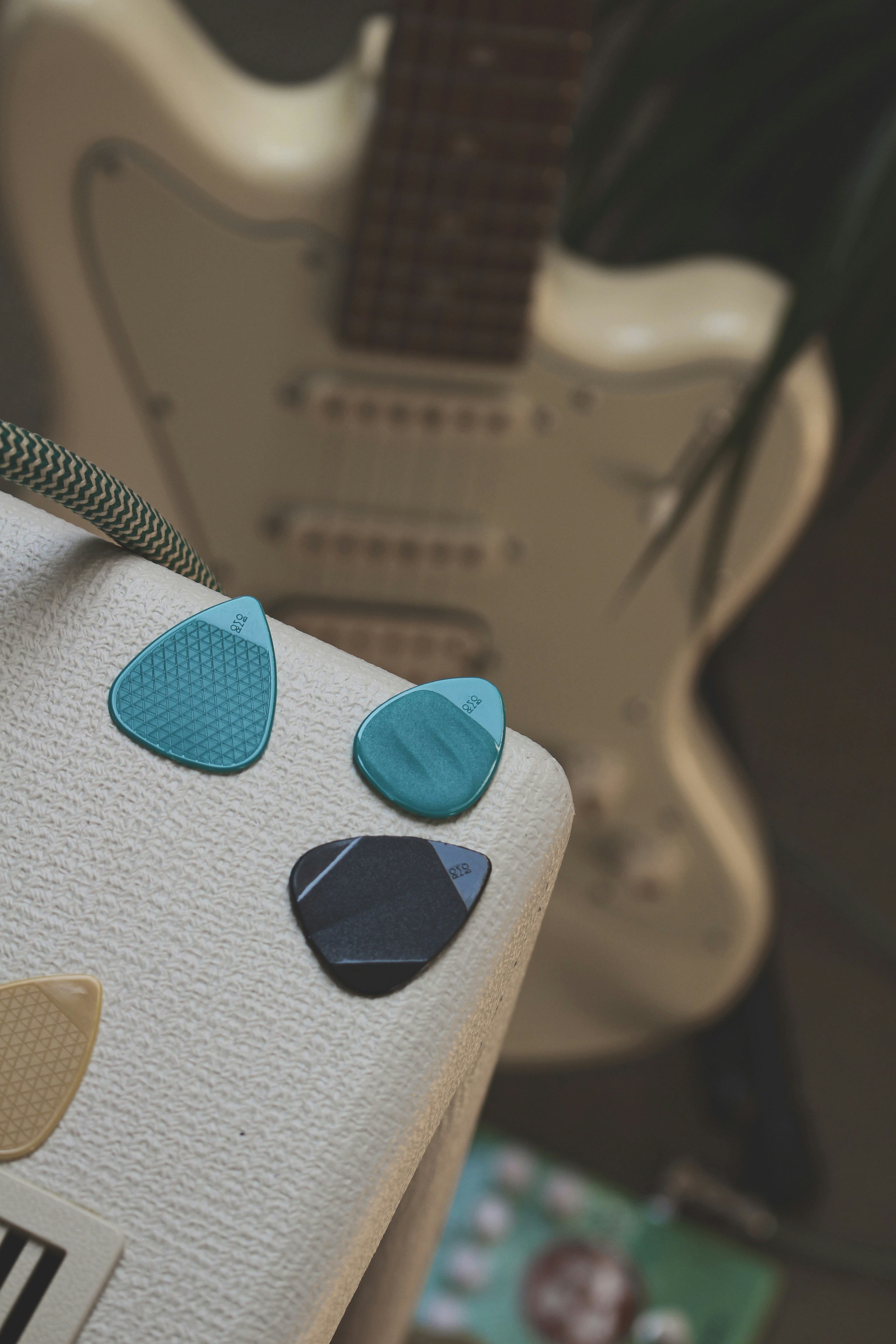
Phew! That was quite the journey through the world of acoustic guitar manufacturers, wasn’t it? From the venerable halls of Martin’s century-old workshops to Taylor’s cutting-edge factories, and from the value-packed gems like Seagull and Yamaha to the bold innovations of Ovation and Breedlove, the landscape is rich, diverse, and full of surprises.
Here’s the bottom line: There is no one-size-fits-all when it comes to acoustic guitars. The “perfect” guitar is the one that speaks to you — whether that’s a warm, woody Martin dreadnought, a bright and snappy Taylor Grand Auditorium, or a sustainably sourced Breedlove with a modern twist. Remember the story we shared earlier about the player who found magic in a humble Seagull? That’s the heart of it all.
If you’re just starting out, brands like Yamaha, Seagull, and Alvarez offer incredible value and reliability that will keep you inspired. If you’re ready to invest in a lifelong companion, Martin, Taylor, and Gibson deliver legendary craftsmanship and tone that have shaped music history. And if you want to stand out with something unique, check out Eastman, Larrivée, or Breedlove for boutique-level artistry without breaking the bank.
No matter your choice, keep in mind the importance of solid woods, body shape, and playability. And don’t forget to consider sustainability — the future of guitar tone depends on it.
So, what’s your next move? Head to your local dealer, try a few models, and trust your ears and fingers. The perfect guitar is waiting to become your new best friend.
📚 Recommended Links for Acoustic Guitar Enthusiasts
Ready to explore or buy? Here are some direct shopping links to the brands we covered, plus a couple of must-read books to deepen your guitar wisdom.
-
Alvarez Acoustic Guitars:
Amazon | Guitar Center | Sweetwater -
Breedlove Acoustic Guitars:
Amazon | Guitar Center | Sweetwater -
Eastman Acoustic Guitars:
Amazon | Guitar Center | Sweetwater -
Epiphone Acoustic Guitars:
Amazon | Guitar Center | Sweetwater -
Fender Acoustic Guitars:
Amazon | Guitar Center | Sweetwater -
Gibson Acoustic Guitars:
Amazon | Guitar Center | Sweetwater -
Guild Acoustic Guitars:
Amazon | Guitar Center | Sweetwater -
Ibanez Acoustic Guitars:
Amazon | Guitar Center | Sweetwater -
Larrivée Acoustic Guitars:
Amazon | Guitar Center | Sweetwater -
Martin Acoustic Guitars:
Amazon | Guitar Center | Sweetwater -
Ovation Acoustic Guitars:
Amazon | Guitar Center | Sweetwater -
Recording King Acoustic Guitars:
Amazon | Guitar Center | Sweetwater -
Seagull Acoustic Guitars:
Amazon | Guitar Center | Sweetwater -
Taylor Acoustic Guitars:
Amazon | Guitar Center | Sweetwater | Taylor Official Website -
Washburn Acoustic Guitars:
Amazon | Guitar Center | Sweetwater -
Yamaha Acoustic Guitars:
Amazon | Guitar Center | Sweetwater
Must-Read Books on Acoustic Guitars
- The Acoustic Guitar Handbook by Ralph Denyer – A classic guide covering guitar history, construction, and playing techniques.
- Guitar: An American Life by Tim Brookes – A fascinating biography of the guitar’s cultural impact.
- The Guitar Handbook by Ralph Denyer – Comprehensive and accessible, great for players of all levels.
❓ Frequently Asked Questions About Acoustic Guitar Manufacturers
What are the best acoustic guitar brands for beginners?
Answer: For beginners, the best brands combine quality, playability, and affordability. We recommend Yamaha (especially the FG series), Seagull (notably the S6), and Alvarez (like the AD60). These brands offer solid tops, reliable construction, and comfortable necks, which are crucial for new players to stay motivated. Their guitars sound great out of the box and hold up well over time, making them perfect first investments.
Who makes the most expensive acoustic guitars in the world?
Answer: The title for the most expensive acoustic guitars often goes to Martin, Taylor, and boutique luthiers like Larrivée or custom shops such as Collings and Santa Cruz Guitar Company. These guitars can feature rare tonewoods (like Brazilian Rosewood), intricate inlays, and custom appointments. For example, Martin’s D-45 and Taylor’s Presentation Series guitars can fetch prices well into the tens of thousands. These instruments are often considered works of art and investment pieces.
What are the key differences between acoustic guitar manufacturers from different countries?
Answer: Country of origin affects materials, craftsmanship, and price:
- USA and Canada: Known for high-end craftsmanship, use of premium solid woods, and meticulous handwork. Brands like Martin, Taylor, Gibson, Larrivée, and Seagull fall here.
- Japan: Brands like Yamaha and Ibanez combine precision manufacturing with excellent quality control, often delivering great mid-to-high-end guitars.
- Mexico, China, Indonesia: Many brands produce affordable or mid-range lines here (Martin’s X Series, Taylor’s Academy Series). These guitars balance cost and quality but may use more laminates or lower-grade woods.
How do I choose the right acoustic guitar manufacturer based on my playing style and budget?
Answer: Start by identifying your playing style and budget:
- Strummers and rhythm players benefit from larger-bodied guitars like dreadnoughts or jumbos from Martin, Gibson, or Guild.
- Fingerstyle players often prefer smaller-bodied guitars (concert, parlor, OM) from Taylor, Larrivée, or Breedlove for clarity and note separation.
- Budget: Under $500, look at Yamaha, Seagull, Alvarez. $500-$1,500 opens up Breedlove, Eastman, Recording King. Above $1,500, you enter premium territory with Martin, Taylor, Gibson.
- Try before you buy: Play several guitars from different brands and body shapes to find what feels and sounds best to you.
How important is sustainability in choosing an acoustic guitar manufacturer?
Why does it matter?
Sustainability ensures the future availability of tonewoods and ethical labor practices. Brands like Taylor and Breedlove lead the way in responsible sourcing and innovation, such as using alternative woods or composites.
Should I prioritize it?
If you care about the environment and want to support ethical manufacturing, choosing brands with transparent sustainability programs is a great way to make a positive impact without sacrificing quality.
📖 Reference Links and Resources for Further Reading
- Martin Guitars – Our Story
- Taylor Guitars Official Website
- Gibson – The Story of Gibson
- Wikipedia – List of Acoustic Guitar Brands
- CITES – Convention on International Trade in Endangered Species
- The Metropolitan Museum of Art – The Guitar
For more on Taylor Guitars, check out their official site: Taylor Guitars | Shop Guitars & Accessories.
Thanks for joining us on this deep dive into acoustic guitar manufacturers! Whether you’re buying your first guitar or your fiftieth, we hope this guide helps you find the perfect instrument to make your music come alive. 🎶
